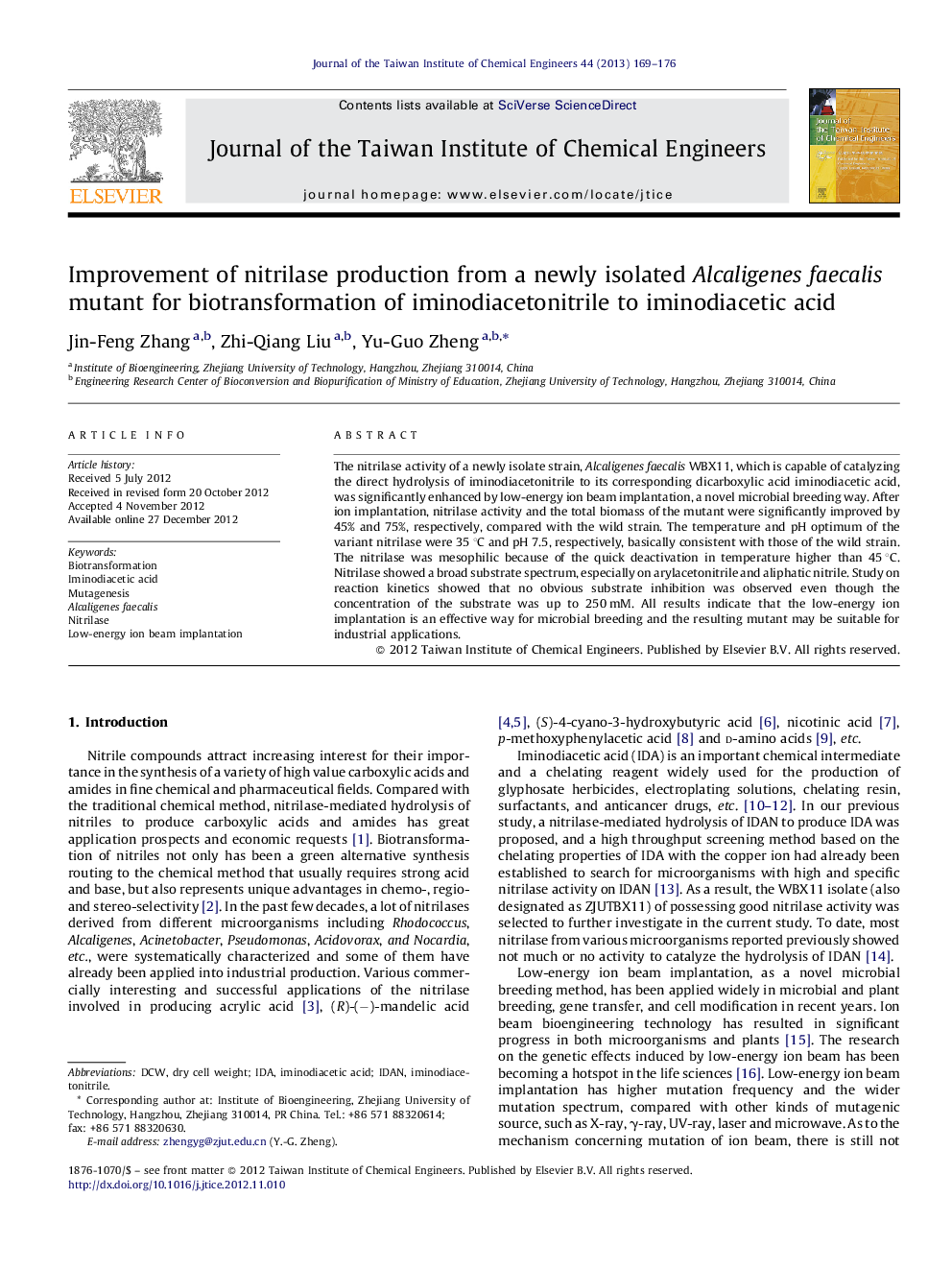| Article ID | Journal | Published Year | Pages | File Type |
|---|---|---|---|---|
| 691312 | Journal of the Taiwan Institute of Chemical Engineers | 2013 | 8 Pages |
The nitrilase activity of a newly isolate strain, Alcaligenes faecalis WBX11, which is capable of catalyzing the direct hydrolysis of iminodiacetonitrile to its corresponding dicarboxylic acid iminodiacetic acid, was significantly enhanced by low-energy ion beam implantation, a novel microbial breeding way. After ion implantation, nitrilase activity and the total biomass of the mutant were significantly improved by 45% and 75%, respectively, compared with the wild strain. The temperature and pH optimum of the variant nitrilase were 35 °C and pH 7.5, respectively, basically consistent with those of the wild strain. The nitrilase was mesophilic because of the quick deactivation in temperature higher than 45 °C. Nitrilase showed a broad substrate spectrum, especially on arylacetonitrile and aliphatic nitrile. Study on reaction kinetics showed that no obvious substrate inhibition was observed even though the concentration of the substrate was up to 250 mM. All results indicate that the low-energy ion implantation is an effective way for microbial breeding and the resulting mutant may be suitable for industrial applications.
► Alcaligenes faecalis WBX11 nitrilase was enhanced by low-energy ion beam implantation. ► Nitrilase activity and the biomass of the mutant were significantly improved. ► Nitrilase showed a broad substrate spectrum, especially on aliphatic nitrile. ► WBX11 nitrilase would be a suitable candidate in industrial applications.
